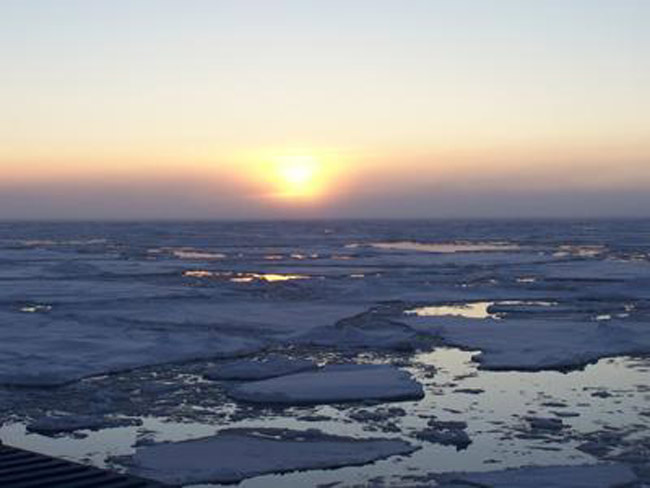Arctic Sea Ice Melting Faster Than Predicted

Get the world’s most fascinating discoveries delivered straight to your inbox.
You are now subscribed
Your newsletter sign-up was successful
Want to add more newsletters?

Delivered Daily
Daily Newsletter
Sign up for the latest discoveries, groundbreaking research and fascinating breakthroughs that impact you and the wider world direct to your inbox.

Once a week
Life's Little Mysteries
Feed your curiosity with an exclusive mystery every week, solved with science and delivered direct to your inbox before it's seen anywhere else.

Once a week
How It Works
Sign up to our free science & technology newsletter for your weekly fix of fascinating articles, quick quizzes, amazing images, and more

Delivered daily
Space.com Newsletter
Breaking space news, the latest updates on rocket launches, skywatching events and more!

Once a month
Watch This Space
Sign up to our monthly entertainment newsletter to keep up with all our coverage of the latest sci-fi and space movies, tv shows, games and books.

Once a week
Night Sky This Week
Discover this week's must-see night sky events, moon phases, and stunning astrophotos. Sign up for our skywatching newsletter and explore the universe with us!
Join the club
Get full access to premium articles, exclusive features and a growing list of member rewards.
Arctic sea ice is melting at a significantly faster rate than projected by even the most advanced computer models, a new study concludes.
"While the ice is disappearing faster than the computer models indicate, both observations and the models point in the same direction: The Arctic is losing ice at an increasingly rapid pace and the impact of greenhouse gases is growing," said study team member Marika Holland of the National Center for Atmospheric Research.
Holland and her colleagues compared model simulation of past climate with observations by satellites and found that the models simulated a loss in September ice cover of 2.5 percent per decade from 1953 to 2006. (September marks the yearly minimum in Arctic ice cover.)
While the highest rate of decline in any of the models was 5.4 percent per decade, satellite measurements, which are considered more reliable, showed that September ice actually declined at a rate of about 7.8 percent per decade during the same period.
"This suggests that current model projections may in fact provide a conservative estimate of future Arctic change, and that the summer Arctic sea ice may disappear considerably earlier than IPCC [Intergovernmental Panel on Climate Change] projections," said study team member Julienne Stroeve of the National Snow and Ice Data Center.
The shrinking ice may actually be about 30 years ahead of model predictions, meaning the Arctic could be ice free in the summer earlier than the IPCC’s predicted timeframe of 2050-2100.
- Timeline: The Frightening Future of Earth
- Arctic Summer Could be Ice-Free by 2040
- All About Global Warming
Get the world’s most fascinating discoveries delivered straight to your inbox.
 Live Science Plus
Live Science Plus











